Many stores strictly comply with the use of electronic invoices. Photo: TP
Having been in the business of selling mother and baby products for many years, Mr. Nguyen Huu Tu, owner of a shop on Nguyen Van Cu Street (Vinh City) shared: “We have been calculating money by machine and issuing invoices to customers for decades. Since June 1, we have connected the cash register system with the tax authorities. At first, the staff were confused, but after being instructed, they were quick to operate and printed invoices in just a few seconds. It is both convenient and transparent.”
As a large-scale grocery store in Hung Loc (Vinh City), for many years now, Mr. Pham Van Tuan Anh has proactively equipped himself with computers, software for calculating money and issuing invoices to customers upon request. However, before June 1, calculating money and issuing invoices had not been thoroughly implemented.
According to regulations, individual businesses with revenue of 1 billion VND/year are required to use electronic invoices from cash registers. Photo: TP
“Previously, small, low-value items were added up using a calculator, while large, multi-item orders required software and invoices. Since June 1, we have entered the software into any order and issued a full invoice,” said Mr. Tuan Anh.
Not only big stores, some small businesses have also proactively changed. Mr. Tran Ngoc Hoang - owner of a popular restaurant on Le Viet Thuat Street (Vinh City) said: "The revenue is less than 1 billion but I still invested in a cash register. We do business seriously, long-term, so we have to be transparent."
Grocery stores have implemented the issuance of invoices generated from cash registers. Photo: TP
At the traditional markets, where many small traders gather, it is quite different. Ms. Nguyen Thi L., who sells clothes at Vinh Railway Station Market, expressed concern: “It is difficult to earn 2.7-3 million VND in revenue every day, so we have not reached the 1 billion VND/year mark. Moreover, at our age, using machines and software is very complicated and cumbersome. In addition, no one asks for invoices from customers.”
Some households give the excuse that they are not familiar with the technology and are waiting for further instructions. In reality, from investing in machinery, getting familiar with the software to daily operations, business people have to change and be “guided by hand”.
Getting a receipt when making a purchase helps consumers protect their rights. Photo: TP
In addition, many tricks to avoid issuing electronic invoices are being applied sophisticatedly. Some households only declare a part of their revenue, the rest is handwritten or left out of the books. Some places install cash registers but do not transmit data, the printed invoices are just a formality... Many businesses even negotiate with customers not to transfer money, only accept cash or transfer money without recording the transfer content.
The most common situation is still not issuing invoices unless customers request them. At a grocery store in front of Hung Dung market, where hundreds of transactions take place every day, invoices still seem to be an unfamiliar concept.
There are stores that have hundreds of transactions every day. Photo: TP
In addition to the compliance awareness of business owners, it is impossible not to mention the role of consumers in this story. Many people still consider invoices as “unnecessary” and the seller’s job. Ms. Tran Thi Hoa, a customer, frankly said: “I am used to buying from this dealer, I know the price of each item, I know the seller well. Once I buy, it is done. What is the point of getting an invoice?”
This habit is aiding fraudulent behavior, distorting the market. According to Mr. Nguyen Van Thang - Chairman of the Consumer Protection Association of Nghe An province: "When not requiring invoices, consumers are depriving themselves of the right to protect themselves in case of disputes. At the same time, it creates opportunities for sellers to hide revenue, tax losses are inevitable."
Many people try to avoid paying taxes by evading invoices. This is a violation of the law and will be severely punished if discovered. Photo: TP
No one denies that applying electronic invoices from cash registers is an inevitable step forward, but for the policy to become a reality, in addition to the involvement of functional sectors, changes are needed from consumers themselves - those who are playing the final role of "closing the deal" for a transparent transaction.
According to Decree 70/2025/ND-CP, acts of invoice evasion such as using the wrong type of invoice, not registering according to the correct procedure, not issuing invoices, issuing invoices at the wrong time, or issuing invoices with incorrect content can be fined from 10 million to 20 million VND depending on the severity. Specifically, the acts and fines are as follows:
- A fine of 2 million to 4 million VND for the act of making the wrong type of invoice according to the provisions of law on invoices for selling goods and providing services and having delivered it to the buyer or having declared taxes;
- A fine of 2 million to 4 million VND shall be imposed on business households that have registered to use electronic invoices generated from cash registers but do not have a connection or transfer electronic data with the tax authority or have not used or have not fully used electronic invoices generated from cash registers.
- A fine of 5 to 10 million VND for not issuing invoices when selling goods or providing services to buyers as prescribed.
AD Advertisement
Source: https://baonghean.vn/ghi-nhan-nhung-ngay-dau-trien-khai-hoa-don-dien-tu-o-nghe-an-10299086.html




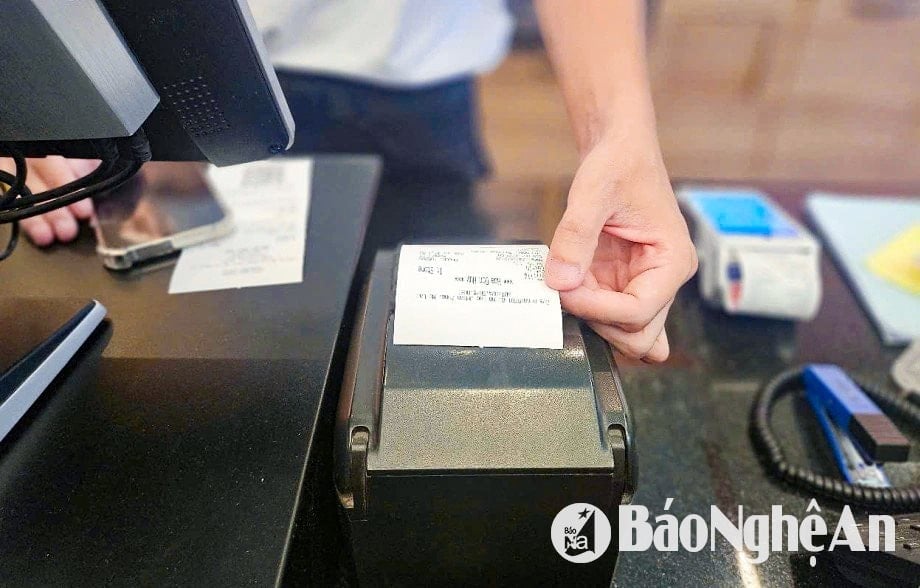

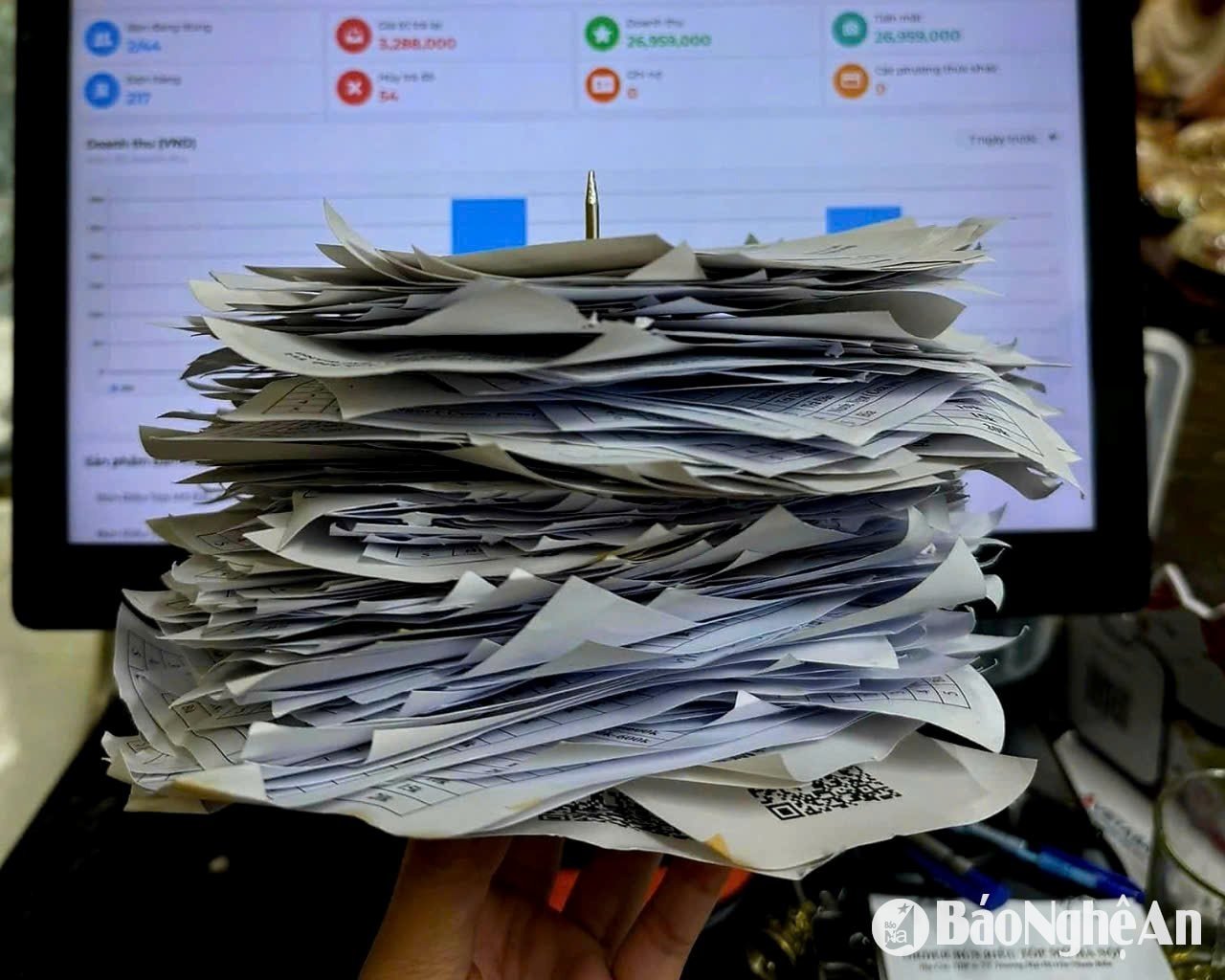


























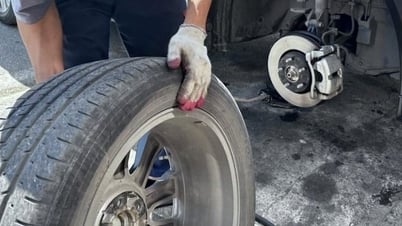
![[Photo] President Luong Cuong works with Hung Yen and Thai Binh Provincial Party Committees on implementing Resolution of the 11th Central Conference, 13th tenure](https://vphoto.vietnam.vn/thumb/1200x675/vietnam/resource/IMAGE/2025/6/6/127b735d2761484d81dcee0d7725a25b)
![[Photo] General Secretary To Lam receives Korean Ambassador to Vietnam](https://vphoto.vietnam.vn/thumb/1200x675/vietnam/resource/IMAGE/2025/6/6/a0765b7543784cbcbfe4755b67d43ab4)































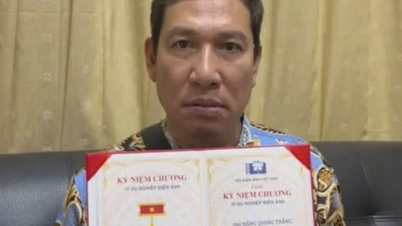





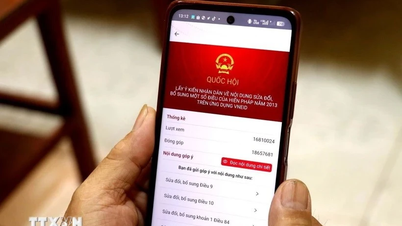



















![[OCOP REVIEW] Tu Duyen Syrup - The essence of herbs from the mountains and forests of Nhu Thanh](https://vphoto.vietnam.vn/thumb/402x226/vietnam/resource/IMAGE/2025/6/5/58ca32fce4ec44039e444fbfae7e75ec)











Comment (0)